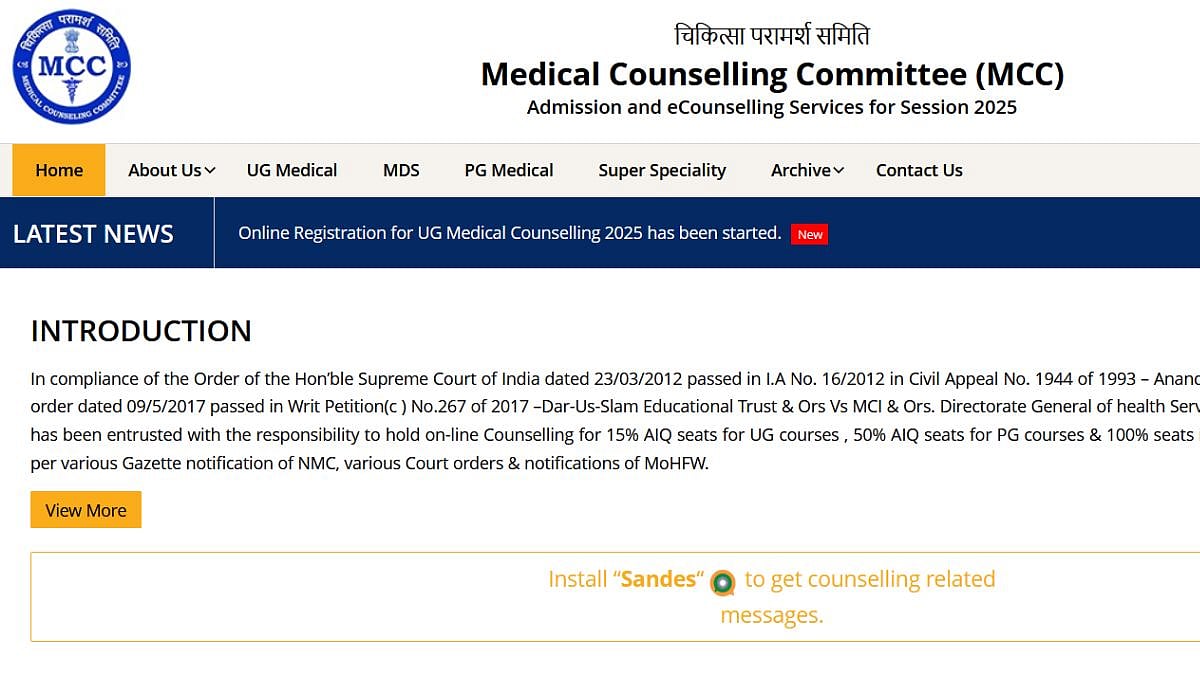According to an Open Doors report, Indian postgraduate students in the U.S. have surpassed Chinese. Behind the rise in the number of Indian students is a considerable fall in the total share of Chinese postgraduate students in the U.S., which has fallen from 31% to 27% at present. What has caused this decrease in the number of Chinese students in American universities? According to various government and media reports, the American fear of alleged Chinese espionage and spying, amid rising bilateral tensions, has been the primary cause of this fall in the number of Chinese students in the U.S.
Chinese university students in the U.S. constantly face the threat of being investigated by the federal government on the allegations of espionage. Many Chinese students are leaving the country to avoid facing humiliation.
In 2018, the National Institute of Health in the U.S. initiated a probe into potential foreign connections of American universities with Chinese institutions.
The Donald Trump administration initiated the 'China Initiative' in 2018 to expose alleged acts of espionage. However, under Joe Biden's rule in 2022, the 'China Initiative' was discontinued but the federal government still makes efforts at regular intervals to target students with Chinese connections.
To analyse and comprehend this trend in the U.S. academic space and to understand how China-U.S. tensions are affecting the educational space and impacting the students, The Free Press Journal (FPJ) spoke to Indian international relations experts.
The ‘authoritarian states’ and the theft of technology
For Jabin Thomas Jacob, an associate professor at the Department of International Relations and Governance Studies at Noida’s Shiv Nadar University, the main concern of the U.S. is the theft of its technology by authoritarian states, especially China.
Talking to the FPJ, Jacob said, “I think democracies have to constantly worry about the reality that their freedoms and openness can and will be exploited by authoritarian states. This has happened to a large extent with the U.S. in the case of its relations with China.”
Jacob believes that science and technology turned into reasons for tensions between the U.S. and its rival China.
“Where science and technology—and by extension, scientists and research scholars—were once seen as an ice-breaker or an opportunity to improve ties, they have now become a cause of tensions because China has sought to steal American tech, undermine American dominance and to blackmail US/Chinese-origin American scientists and researchers for decades now”, he said.
Jacob believes that many Chinese students have returned to China due to the incentives offered by the Chinese government. Many of them, he alleged, were knowingly engaged in the illegal transfer of technology to China when the ties between the two governments were normal.
He claimed that the Chinese universities are not free spaces but instruments of the Chinese state, which is accused of human rights abuses. This is a reason why there are restrictions imposed by the U.S. on Chinese students.
“The Chinese state is constantly pressuring Chinese academic institutions which in turn pressure their scholars and researchers. Academic collaborations under such circumstances are dangerous for both these scholars as well as foreign countries that engage them”, Jacob added.
Raviprasad Narayanan, an associate professor at the Centre for East Asian Studies at the Jawaharlal Nehru University (JNU), New Delhi, has a similar opinion.
“Science-based projects are hesitant to collaborate with China-based educational institutions because education in China is dominated by the Chinese Communist Party (CPC). It is keen on technological inputs arrived by collaborating with US and EU research institutions, with stalwart Nobel laureates as faculty”, Narayanan claimed.
He believes that the US has genuine concerns regarding the technology transfer to China as in the future, Beijing will have an upper hand in technology compared to the U.S.
While Narayanan claimed that science and technology sectors are vulnerable to espionage, he asserted that social science is relatively safer.
“In social sciences, the U.S. is less worried as China is fathomed in contributing to intrinsic democracy, independent judiciary, freedom of media, human rights with special privileges for different ethnicities, etc.”, he told the FPJ.

Chinese technological progress and the rise of Xi Jinping
“The U.S. is genuinely concerned about Chinese ingress and, when for the past few years, Chinese universities like Tsinghua have filed more patents than even the Massachusetts Institute of Technology (MIT), it bears heavily on a future where China-made technologies are going to supplant the U.S.”, Narayanan added.
The increasing tension between China and the U.S. has intensified since the ascension of Xi Jinping in 2012, Ritu Aggarwal, an associate professor at the Centre for East Asian Studies at the JNU, opined.
“With Xi Jinping coming to power in 2012, the China-US relationship has moved towards strategic completion and that is reflected in lesser acceptance of Chinese students in American Universities. After COVID-19, China is closed for academic engagement and collaborations, however, trade partnerships are flourishing”, Aggarwal said.
The trade war
The discussion on the China-U.S. relationship, which has impacted the lives of Chinese students in the U.S., is also incomplete without mentioning the trade war, which started during the Trump presidency. Jacob blames the Chinese for the fiasco.
“Remember it is not the US that started the trade war. This has been going on for a long time now because the Chinese refused to open their markets to American tech in what they termed 'strategic sectors'. We have all gotten used to the fact that Google and Facebook and GPS are not operational in China for decades now”, Jacob said.
He compared the situation with India, where the government has increasing reservations about opening these strategic sectors to the U.S. According to Jacob, the situation is similar in India too, which has increasing reservations about opening up in these sectors to both the US and China.
Scope for Indian students
On asking whether Indian students can fill the space created by the Chinese, Jacob said that Indians are already filling up many of the gaps left by declining numbers of Chinese scholars but it is unlikely that these Indians are going to be of the same benefit to India as the Chinese in the U.S. were to their country.
According to Jacob, the Indian Americans are under no pressure from the Indian government to contribute to the motherland –that sense of attachment or patriotism, which was the case with a large number of Chinese in the U.S. for several generations, has seldom been the case with their Indian counterparts.
According to Narayanan, India did the right thing by not permitting the expansion of Confucius Institutes to universities in the country. He also claimed that the proposals of collaboration between the Indian Institute of Technologies (IITs) and Chinese institutions are also closely scrutinised.
The onus is on China
Regarding the resolution of the issues faced by the Chinese students in the U.S., Aggarwal placed the onus on Beijing.
“China really has to think of new strategies to deal with the U.S., especially at a time when the country is also undergoing a domestic crisis of its own”, she told the FPJ.









.jpg)

